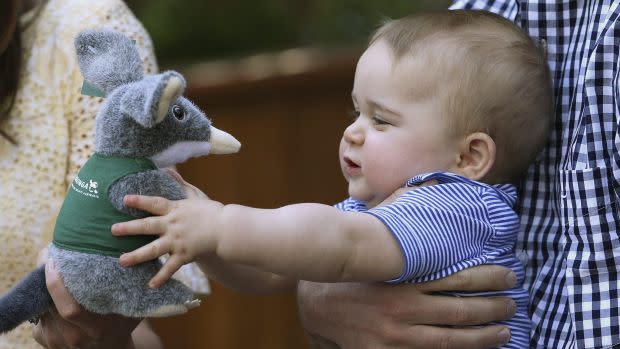Australia does one simple thing to support first-time parents

New parents face a myriad of challenges, from figuring out childcare and finances to making important decisions about their baby’s health and early education. But one of the most pervasive and least-talked about issues confronting new moms and dads is loneliness.
A recent survey conducted by the British Red Cross and the supermarkets-to-funerals Co-Op Group found that 82% of mothers under the age of 30 in the UK feel lonely some of the time, while 43% are lonely often or always. This makes sense: Loneliness is associated with big transitions in life, and there are few transitions as big as becoming a parent. Mothers caring for newborns may see fewer friends, leave the house less, take time off work, and feel permanently sleep-deprived. Taken together, they can add up to a crisis of loneliness for new parents, which can leave them vulnerable to mental health problems, and also affect their children’s long-term social, behavioral, and cognitive outcomes (pdf).
Decades ago, Australia came up with a surprisingly simple way of tackling this problem: parent groups. New parents attend parenting information sessions run by child and family health nurses for six to eight weeks. They meet and connect with other new parents in their community and share any questions or concerns with experienced professionals. Research shows that these groups help reduce social isolation, which may improve parents’ mental health.
Can support groups help lonely new parents?
Loneliness is a silent and efficient killer. Smoking 15 cigarettes a day has the same effect on health as prolonged social isolation, according to a 2015 meta-analysis. A chronic sense of loneliness can trigger the release of stress hormones that are associated with lower resistance to viruses and increased risk of cardiovascular disease. A lack of social support has been linked to higher rates of breast cancer recurrence in women and poorer cognitive health in older adults.
They say it takes a village to raise a child, but today, many parents in rapidly-urbanizing countries don’t have a village. Urbanization and mobility means many parents—more often than not, mothers—don’t have access to community-based support systems made up of neighbors and older family members.
Research suggests that parenting support groups can help reduce mothers’ sense of social isolation and may be associated with mothers’ self-reported well-being. These groups have existed in Australia since the 1920’s but have been formally offered free of charge to all first-time parents (pdf, p. 3) since the 1990s. They are known as parents’ groups in Queensland, Territory support groups in the Northern Territory, new parents’ groups in Tasmania and New South Wales, and early parents’ groups in Western Australia. Until recently, they were informally known as “mums’ groups,” because mothers were the ones who took on most of the burden of childcare. Some 20 years ago, an effort was made to widen the scope of these groups to include new fathers, without much success, according to Norma Barrett, a public health lecturer at Deakin University in Australia.
Last year, Barrett interviewed first-time mothers in the state of Victoria about their experience in the groups, and found that they “were perceived as sites strongly reinforcing traditional social norms” and that “this perception acted in a gendered way as a barrier to mothers’ and fathers’ attendance and participation.”
Loneliness is tricky, because there is a difference between someone’s actual social isolation and their perception of it. Someone with lots of friends and a busy social calendar might feel lonelier than someone who spends most of their time alone. Support groups might expose new parents to a network of their peers and equip them with more social capital, but that may not change some parents’ perceived loneliness. And there is limited evidence that short-term support groups can help parents dealing with deeper mental health issues, such as depression or trauma tied to a difficult birth.
Given these limitations, Australia’s parent groups might best be viewed as one of many tools available to support new parents, in addition to mental health support resources and regular primary care visits. But they are a good place to start.
Read more from our series on Rewiring Childhood. This reporting is part of a series supported by a grant from the Bernard van Leer Foundation. The author’s views are not necessarily those of the Bernard van Leer Foundation.
Sign up for the Quartz Daily Brief, our free daily newsletter with the world’s most important and interesting news.
More stories from Quartz:
